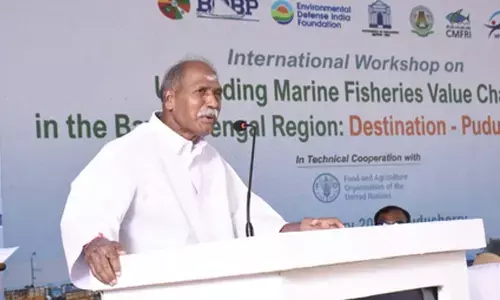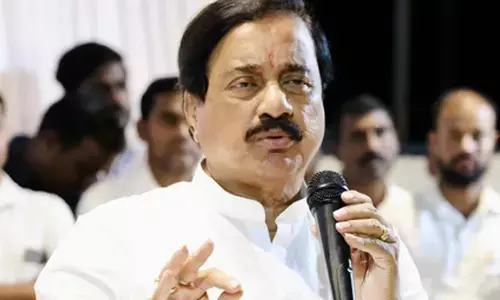Ministers' panel to decide on CPSEs to be retained

Ministers’ panel to decide on CPSEs to be retained
The Budget identified four sectors for strategic disinvestment
New Delhi: A panel of Ministers, comprising Finance Minister Nirmala Sitharaman and Road Transport Minister Nitin Gadkari, will take the final call on the number of public sector companies that will be retained in each of the strategic sectors, Department of Investment and Public Asset Management (DIPAM) Secretary Tuhin Kanta Pandey said.
The government in the Budget unveiled the Disinvestment/Strategic Disinvestment Policy and identified four sectors - Atomic energy, Space and Defence; Transport and Telecommunications; Power, Petroleum, Coal and other minerals; and Banking, Insurance and financial services - as strategic sectors, where bare minimum Central Public Sector Enterprises (CPSEs) would be retained. The CPSEs in other sectors would be privatised. NITI Aayog would be working on the preliminary list of CPSEs, which could be taken up for strategic disinvestment.
The Secretary in the DIPAM, which manages government equity in public sector companies, said that the strategic disinvestment policy is an important directional shift and gives a broad idea to the private sector about which companies could be up for sale. "The idea is bare minimum will be retained. There the GoM has been constituted, which is an alternative mechanism (comprising) finance minister, road transport minister and minister from the administrative ministry. The alternative mechanism will decide which is the bare minimum that would be retained in any particular sector.
"The strategic sectors have been classified in four broad baskets - national security, critical infrastructure, energy and minerals and financial services," Pandey said. He said bare minimum to be retained means rest can be privatised, or can be closed, or merged, or made subsidiary of another CPSEs. "So, there is a very big restructuring of the public sector that is taking place. This is a policy which will operate over a period of next few years. That opens up the work of the government and indicates to the private sector what the government has in mind. We need private sector interest to revive in order to do capital formation," Pandey added.










